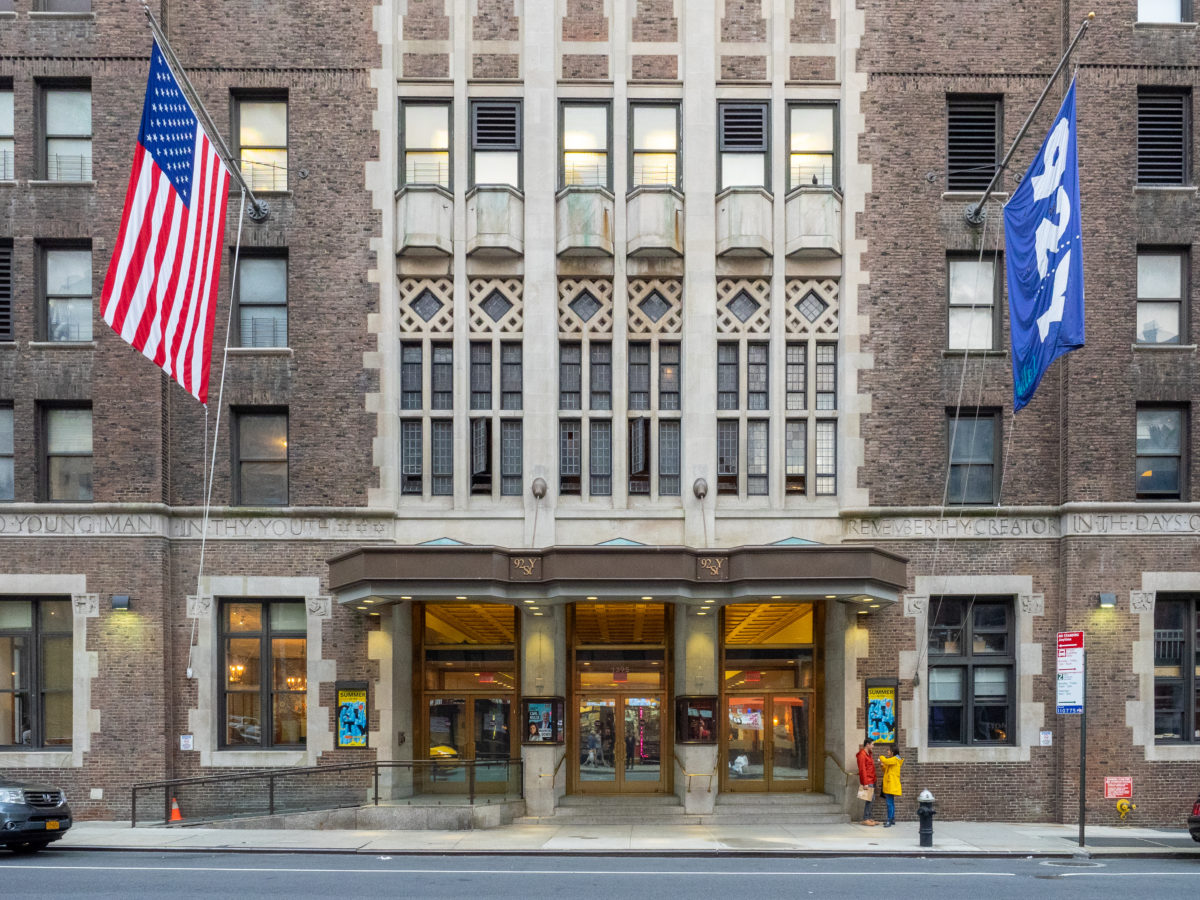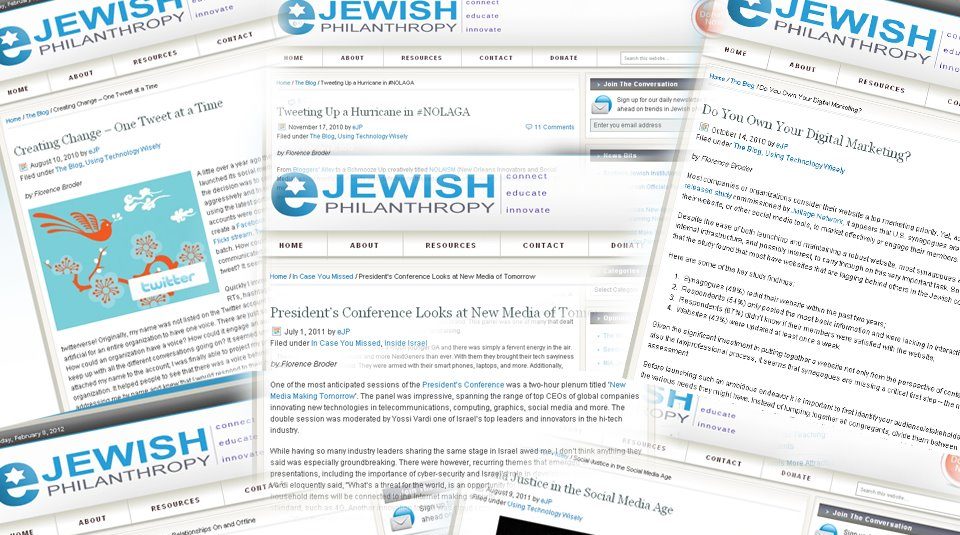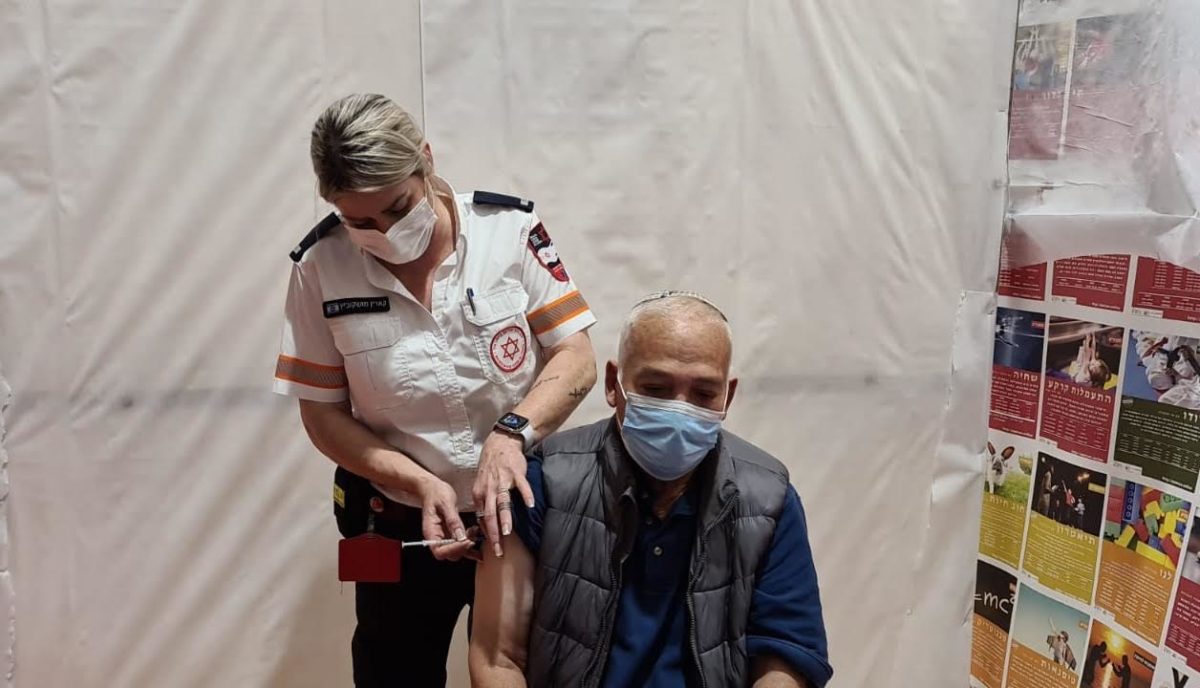Your Daily Phil: Adam Lehman on Hillel’s student wellness work + New York nonprofits hopeful pandemic exodus will reverse
Good Tuesday morning!
The Chronicle of Philanthropy is sharing recent research that found that not only do younger people volunteer more, but they also plan to give more money than older generations.
More than half of millennial donors expect to contribute $500 or more in 2021, compared with just 26% of baby boomers, according to a survey from FrontStream. A survey from Data Axle, a provider of analysis and research, showed that about half of respondents aged 18 to 29 volunteer, compared with less than a quarter of respondents ages 45 to 60.
Philanthropy writer Vu Le is generating conversation at his snarky blog, Nonprofit AF, and on Twitter with a post asking whether foundations are sometimes too quick to encourage mergers among charities. In his post, Le points out that mergers are delicate, risky transactions, and adds that there are lots of ways for charities to achieve efficiencies without merging.
In the Jewish world, several mergers are in the works, but nonprofits are also working together in exactly the way Le describes, Aliza Mazor, of nonprofit consultancy UpStart, told eJewishPhilanthropy. Several Jewish camps in the Bay Area, for example, collaborated on one website for recruitment, instead of competing.
Known as the founder of the classifieds website Craigslist, which bears his name, Craig Newmark now spends most of his time on philanthropy — although he also has a comedy tutor, according to a new profile.
The Craig Newmark Philanthropies most recent gift was $15 million to mitigate food insecurity; he’s also focused on supporting journalism and fighting misinformation.
CAMPUS LIFE
Hillel leans harder into student wellness work

USC Hillel
Many Jewish college students are at home — with their family, but isolated from friends. Others are on campus, still taking classes virtually, and instructed to socialize with only a small group of peers. In both situations, they’re struggling, said Adam Lehman, Hillel International’s CEO. eJewishPhilanthropy’s Helen Chernikoff spoke with Lehman and other Hillel professionals about how the pandemic has intensified Hillel’s focus on mental health.
Mixed Blessing: “Even if there are elements of being back at school, that has in some ways made the experience even more frustrating,” said Lehman, who has two daughters in college.
New Role: Leah Moz, Hillel’s director of wellness, was given that title about three years when the movement started thinking more consciously about how it could contribute to students’ mental health, she said. Hillel realized that it was positioned to help, because the relationships and reflection that are central to its work as a hub for Jewish student life can protect against such distress. The need on the part of the students was obvious, she said, citing the Healthy Minds Study, which, before the pandemic, found that 68% of students experience acute anxiety.
SPONSORED
How Jewish professionals can support families raising kids with disabilities during the pandemic

Courtesy The Covenant Foundation
While all families have faced challenges during the global COVID-19 pandemic, new research identifies ways that parents of children with disabilities are experiencing greater isolation, anxiety and impact on their financial well-being, writes Gabrielle Kaplan-Mayer in a piece celebrating Jewish Disability Awareness and Inclusion Month.
Background: As Jewish professionals, it’s essential that we stay aware of the challenges that all of our families are facing so that we can both engage and support them. If you’ve noticed that your families who have children with any kind of special needs have been missing from your online or hybrid educational programs or family events, consider that many of them have been operating in unrelenting crisis mode since the start of the pandemic.
Suggestions: There are a number of helpful ways that synagogue professional and community leaders can support families raising kids with disabilities during this difficult time, such as…Make a phone call…Learn about family engagement…Make your online programming accessible NOW.
DONOR DOUBTS
New York Jewish nonprofits hopeful pandemic exodus will reverse

AJAY SURESH
Tough but intensely proud, New Yorkers tend to be obsessed with their heady but hard-to-live-in city. And for decades they have also been obsessed with their fellow New Yorkers departing the city. The leaving-New-York story resurfaced yet again during the coronavirus pandemic, and it’s at least partially true: New Yorkers with the means to find larger houses with more outdoor space are fleeing the city and relocating to places like suburban New Jersey and South Florida. Jewish communal executives told Jewish Insider’s Gabby Deutch that they expect the trend to be short-lived, with New Yorkers returning to the city in the summer or whenever life regains some semblance of normalcy.
Sticking by: “People are stepping up and maintaining their support,” said Mark Medin, executive vice president for financial resource development at the UJA-Federation of New York. “People that have been longtime New York residents and longtime donors and leaders in UJA understand the gravity of the need in the community right now.” The surge in virtual programming has allowed Medin to continue engaging high-level donors even outside the city, via virtual meetings and briefings on UJA’s work responding to the increase in hunger, joblessness, and eviction fears. UJA had a record-setting fiscal year, but the organization alsohad to take tens of millions of dollars from its endowment to meet the needs brought on by the pandemic.
Real concern: If high-income donors leave the city for good, Medin recognizes his organization will be in trouble. “If there’s a significant exodus from New York City, that’s going to have a tremendous impact on the tax base of the city and the philanthropic organizations that rely so heavily on donations,” Medin explained. “It is incumbent upon New York-based organizations to innovate and think about how they stay connected to their donors while at the same time recognizing that this” — people leaving the city for good — “is a real concern,” he said.
Coming back: The Ramaz School, a modern Orthodox Jewish day school on the Upper East Side, saw a drop in enrollment this year, but nearly all the families that left have re-enrolled their children for the 2021-2022 school year. “A small number of our families have moved either temporarily or permanently to the Jersey Shore, Florida, or Long Island, but the majority of [them] have expressed they want to return as the COVID rates significantly diminish,” Jonathan Cannon, Ramaz’s head of school, told JI. Some donors whose children left stopped giving, but others have stood by Ramaz. “We are very grateful that a number of families who have moved out of New York have continued to support the school because they feel part of the Ramaz family and intend to return to the school next year,” he said.
PROFILE
eJewishPhilanthropy (eJP) at 14: Reflections on where we are

eJP homepage, circa Feb.2012; compilation by Florence Broder
Introduction: eJewishPhilanthropy recently moved to its new home, and Dr. Steven Windmueller offers some reflections on the growing “e” Jewish publication.
Background: During these fourteen years, eJP has generated more than 16,000 postings. As framed in its mission statement, the purpose of this journalistic endeavor remains: “to highlight news, resources and thought pieces on issues facing our Jewish philanthropic world in order to create dialogue and advance the conversation.”
Observation: “Philanthropy” within the Jewish communal setting holds a very distinctive place, as we understand “tzedakah” to represent a deeper and broader meaning than merely “charity.” As a result, any publication dedicated to telling the Jewish philanthropic story, including this one, must represent something significantly more than a reporting mechanism.
Worthy Reads
Shidduch Resume: Yente is all of us, writes Tova Cohen in Tablet, about the flourishing during the pandemic era of informal matchmaking groups on WhatsApp that are attracting the non-Orthodox as well as the more traditionally observant who favored such services well before the coronavirus hit. [Tablet]
Prove It: An Israeli high school girl is part of the team at the Technion in Tel Aviv who have created a breakthrough in artificial intelligence: the “Ramanujan” machine, which can in hours discover mathematical “conjectures” that would normally take lifetimes, writes Asaf Ronel in Haaretz. A conjecture is a mathematical proposition that’s presumed true, but not proven, and the machine is named after Srinivasa Ramanujan, an Indian man with no formal mathematical training who solved seemingly impossible mathematical problems. [Haaretz]
Waiting Tables: Sarah Michelle Gellar, the original Buffy the Vampire Slayer, tells Chris Gardner of The Hollywood Reporter about her role helping Subaru generate enthusiasm and donations for its pledge of 100 million meals for hunger relief organization Feeding America. “I joke that I work as an actor to support my philanthropy habit,” Gellar jokes. [HollywoodReporter]
Smart Money: Nick Opinsky, a development officer at the American Jewish World Service, reviews “It’s a Helluva Town: Joan K. Davidson, the J.M. Kaplan Fund, and the Fight for a Better New York,” in PhilanTopic. He writes that the foundation, created from the proceeds of the sale of the Welch Grape Juice Company, has repeatedly achieved significant results because despite its modest size, it has acted quickly. [PhilanTopic]
Community Comms
Be featured: Email us to inform the eJP readership of your upcoming event, job opening, or other communication.
Word on the Street
Taube Philanthropies has endowed a new Jewish studies chair at the Graduate Theological Union… The Jerusalem Foundation has announced 45 grants, totaling $1.25 million, to culture and community initiatives throughout Jerusalem… The iCenter has launched a certificate in experiential Israel education… CAF America’s newest COVID-19 report uncovers that digital fundraising capabilities and strategic financial planning are among the most crucial skills needed to remain resilient…
Pic of the Day

Courtesy MDA
As part of the Ministry of Health’s Magen Avot Ve’Imaot (“Protecting the Fathers and Mothers”) program, Magen David Adom vaccinated residents and employees at sheltered housing, assisted living and nursing homes in Israel.
Birthdays

Co-founder and managing partner of Avenue Capital Group, Sonia Gardner…
Activist investor, Carl Icahn… Founding national director of American Friends of Lubavitch and director of Chabad activities in Greater Philadelphia, Rabbi Abraham Shemtov… Professor of political science at the University of Hawaii, Michael Joseph Shapiro… Ecuador-born, executive director of the Jewish Federation of Maryland’s Howard County, Ralph Grunewald… Secretary-General of the World Council of Religious Leaders, Bawa Jain… Editor of the Talent Network at The Washington Post, Susan K. Levine… Co-director of “Women for Israel’s Tomorrow,” Nadia Matar… Past president of Hebrew Free Loan in Detroit and founder of Brilliant Detroit, Carolyn Glaser Bellinson… Head of communications for Bloomberg News and Bloomberg Media Group, Ty Trippet… Regional Director of the Northeast Region of Birthright Israel Foundation, Marissa Schaevitz Levey… CEO of PR firm FinePoint, Meredith Fineman… U.S. Senator Jon Ossoff (D-GA)… Singer-songwriter and guitarist, Danielle Haim… Amy Kurtz… Rachel Rubenstein… Eric McDonald…








